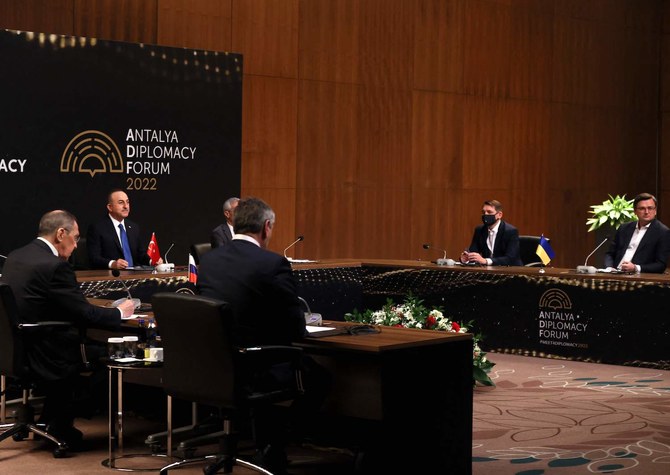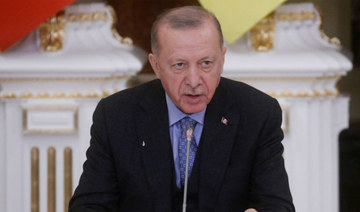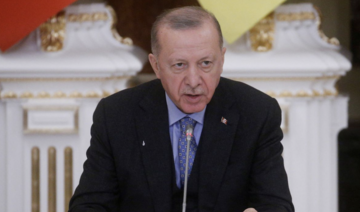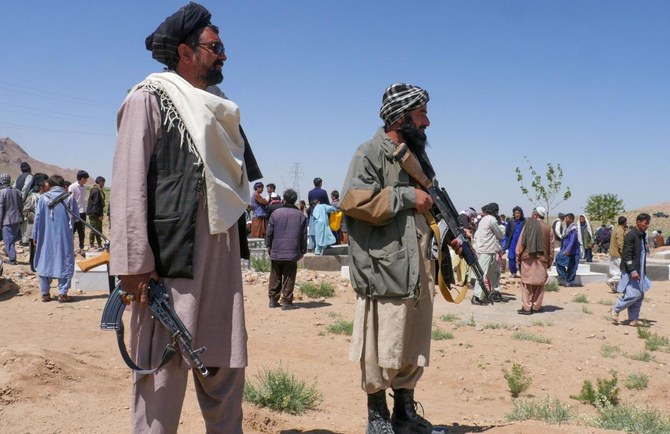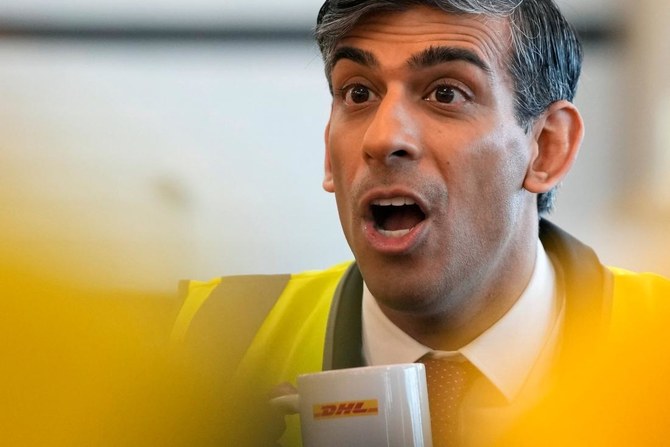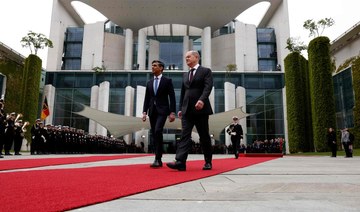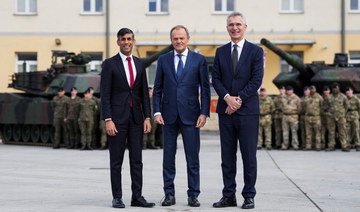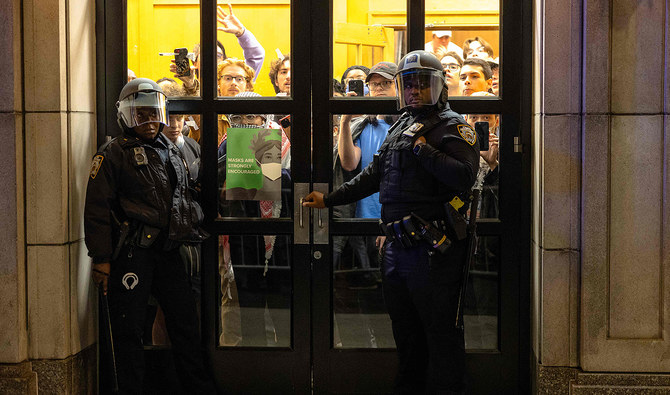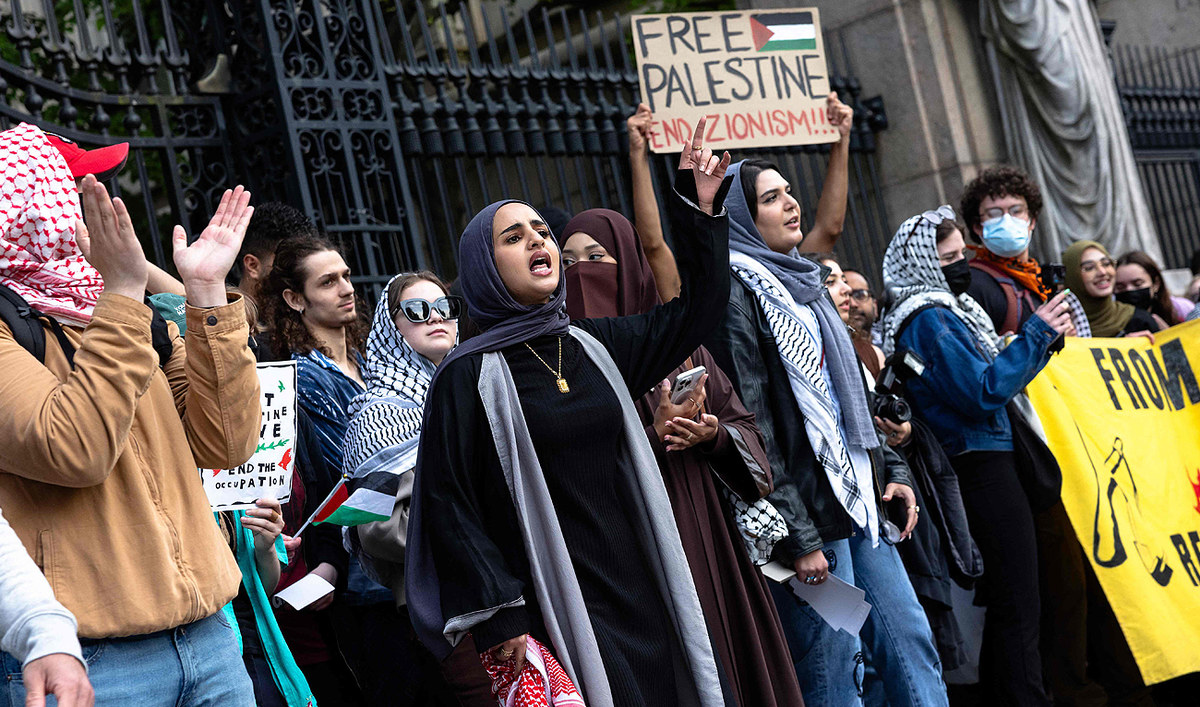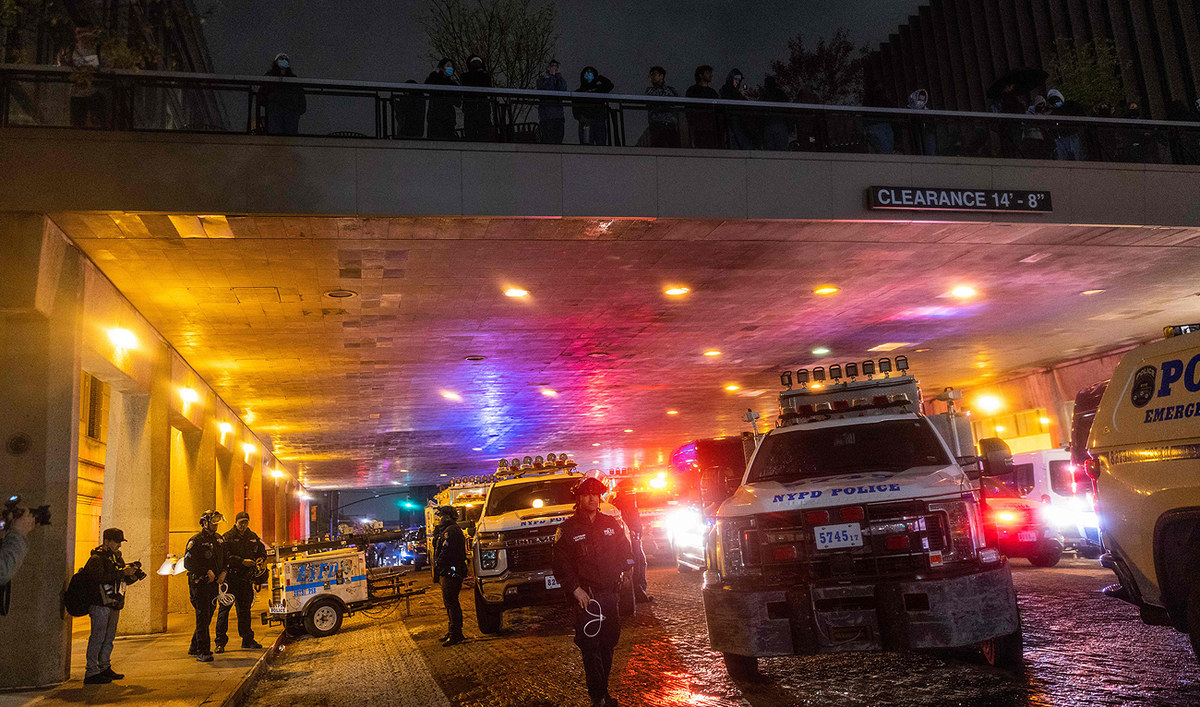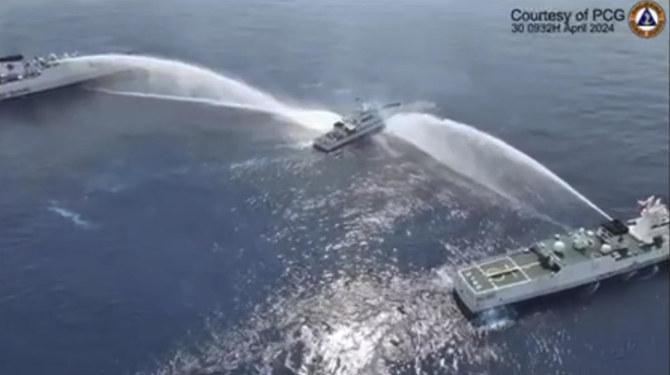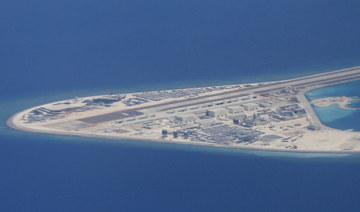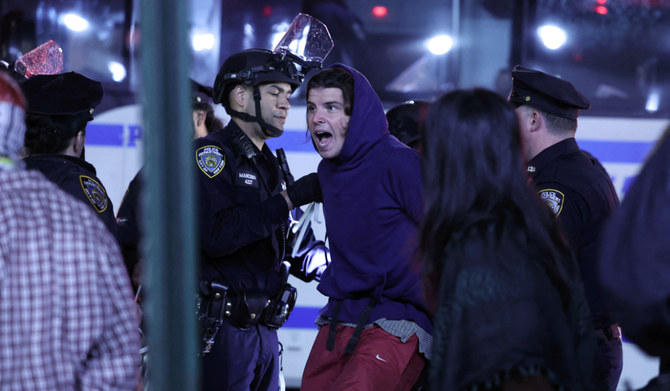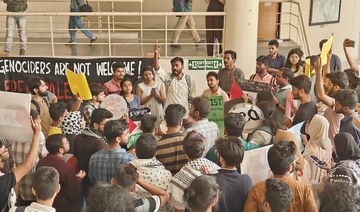ANKARA: Usually known for its sunny weather and popular tourist beaches, Antalya on Turkey’s southwest coast has become a focal point for peace talks between senior Ukrainian and Russian officials.
Two weeks after the Russian offensive began in Ukraine, the foreign ministers of both countries met on Thursday in the resort town, with the Turkish government acting as mediator on the margins of the Antalya Diplomacy Forum.
The tripartite meeting, the first high-level talks since the start of the conflict, came a day after Ukraine accused Russia of war crimes over airstrikes on a maternity hospital in the besieged port of Mariupol. Russia has claimed that the hospital served as a military base for the hard-line Azov Battalion and “other radicals.”
Delegations from the two countries have held three rounds of talks previously, in Belarus and Ukraine, but with no breakthrough.
The latest round of discussions in Antalya also appear to have made little progress, with Ukrainian Foreign Minister Dmytro Kuleba saying that no ceasefire agreement was reached.
Russian Foreign Minister Sergei Lavrov and his Ukrainian counterpart Dmytro Kuleba also failed to reach an agreement on humanitarian corridors or a ceasefire.
Turkey Foreign Minister Mevlut Cavusoglu told reporters: “There are many elements that Russia and Ukraine are debating, including neutrality. A comprehensive peace agreement is also on the table.”
Moscow's demands include Ukrainian neutrality, demilitarization and a guarantee that Kyiv will not join NATO. In response, Kyiv recently offered Ukrainian neutrality.
Ukraine’s foreign minister described the meeting as “difficult” and said that Moscow reverted to “traditional narratives.”
Lavrov said that Russian President Vladimir Putin is willing to meet with his Ukrainian counterpart Volodymyr Zelensky to talk about “particular issues,” adding: “I hope such a need will arise.”
Both countries underlined their willingness to continue using diplomatic channels in the future.
“There was a clear gap of expectation between Kuleba and Lavrov regarding the summit in Antalya,” Ozgur Unluhisarcikli, Ankara office director of the German Marshall Fund of the US, told Arab News.
“During the press meetings, which the two foreign ministers held separately, Kuleba said that they couldn’t reach an agreement on humanitarian corridors or a ceasefire,” he said.
“When a journalist asked Lavrov about the issue, Lavrov said they never aimed to reach an agreement on humanitarian corridors or ceasefire as those issues are being discussed in Belarus,” he added.
However, experts say that bringing together the two foreign ministers was an important step towards de-escalating tensions and reminding people of the power of diplomacy.
Turkey, which shares a maritime border with Russia and Ukraine in the Black Sea, has tried to maintain a relatively neutral position during the conflict. It did not join Western sanctions against Russia, and offered to mediate peace talks while also condemning the invasion.
Turkey sees energy, trade, tourism and defense ties with Russia as important, but also values defense cooperation with Ukraine.
While Western sanctions have failed to halt the Russian offensive, Lavrov said that Moscow will no longer depend on Western companies, and will not try to persuade the West to buy oil and gas.
The UK recently issued new sanctions against seven Russian billionaires, and the International Monetary Fund approved $1.4 billion in emergency financing for Ukraine. The World Bank recently warned that sanctions have pushed Russia close to defaulting on loans.
Unluhisarcikli said that it was “unclear” what Lavrov expected from the meeting, beyond a platform to make his case to a global audience.
He added: “Turkey’s role in this process was not that of a mediator, but that of a facilitator, limited to creating a platform for bringing the parties together, which Turkey did fulfill.”
According to a survey by Aksoy Research company, 78.2 percent of people think that Turkey should remain neutral in the war.
Ankara is facing a busy diplomacy schedule over the coming days.
Following a phone call between Turkish President Recep Tayyip Erdogan and his US counterpart Joe Biden on Thursday, Greek PM Kyriakos Mitsotakis and German Chancellor Olaf Scholz will visit Turkey on March 13 and 14, respectively. The NATO secretary-general will also visit Erdogan on Friday.
“The message that the two parties sent out sticks to their usual playbook,” Francesco Siccardi, senior program manager at Carnegie Europe, told Arab News.
“Lavrov condemned the West for essentially provoking Russia into the war and said the Russian military was advancing as planned. Kuleba repeated that Ukraine would resist and not surrender. It was legitimate to expect some limited progress on humanitarian corridors, but the meeting in Antalya bore no concrete results. It’s clear that decisions are taken in the Kremlin.”
During the press meeting, Lavrov was asked whether Russia was planning to “attack other countries.” He replied: “We are not planning to attack other countries. We didn’t attack Ukraine in the first place.”
According to Siccardi, the parties will convene again and it is significant that the Russians have indicated this might happen in the future to discuss “specific issues.”
Turkey’s effort to facilitate talks “is valuable, even if the prospects for quick results are slim,” he said.
Samuel Ramani, associate fellow at the Royal United Service Institute, told Arab News: “Turkey’s international status within NATO was the only winner from the Russia-Ukraine talks.”
Ramani said that Turkey and Russia will benefit from their experiences in working together diplomatically. Both countries tried to deliver a ceasefire agreement in Libya in January 2020, and are co-guarantors of the Astana peace process in Syria.
Seckin Kostem, a Russia expert from Bilkent University in Ankara, said that Russia and Ukraine will most likely continue with the negotiations over the coming weeks.
“Temporary ceasefires can be accomplished, but it is unrealistic to expect a breakthrough in negotiations for a political settlement,” he told Arab News.
“Lavrov has reiterated the Kremlin’s demands from Ukraine, and in return, Kuleba demonstrated the Ukrainian government’s determination to continue resisting Russian occupation.”
Separately, on Thursday, Russia announced it would no longer attend the Council of Europe, days after the Strasbourg-based human rights body suspended Moscow’s rights of representation due to the Ukraine conflict, which has led to more than 2 million people fleeing the country.
On Saturday, Russia also released a list of “unfriendly” countries, including many members of the Council of Europe.



